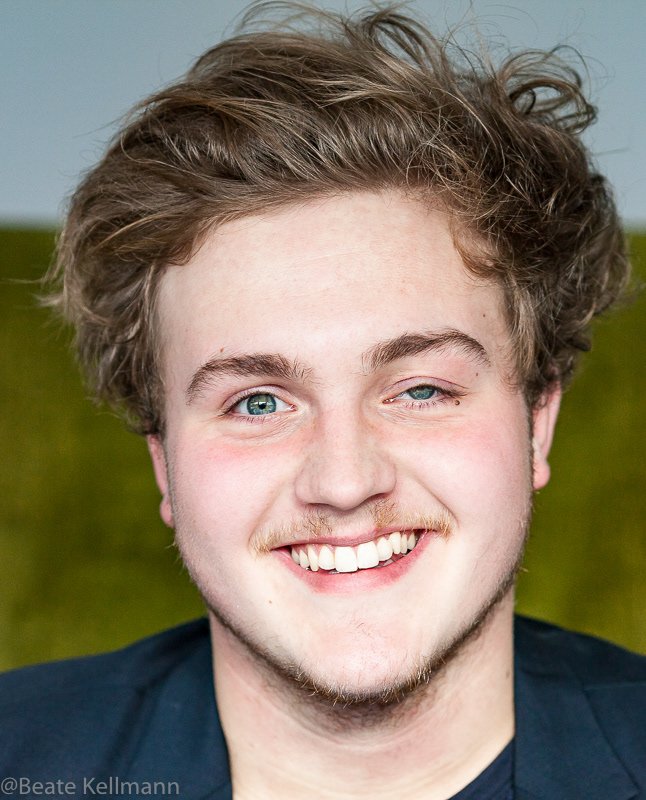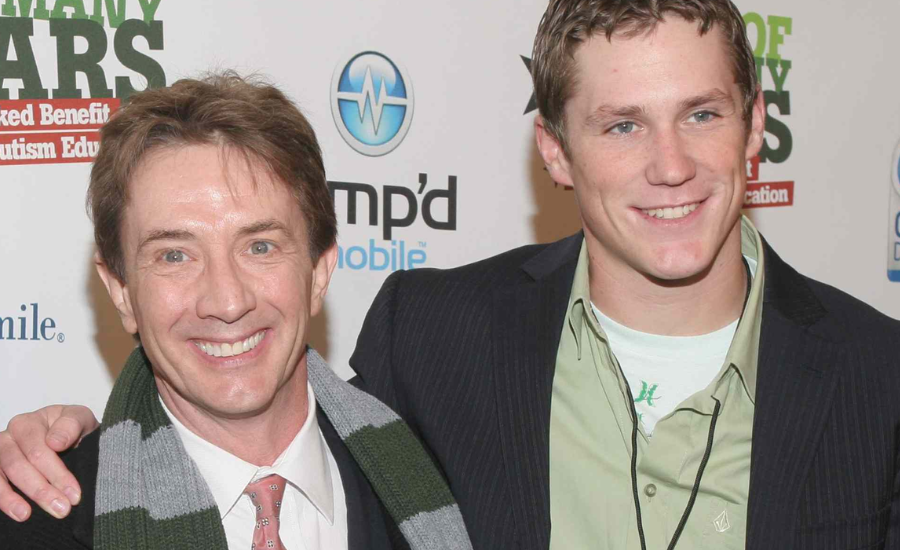Kjell Brutscheidt, a figure whose name is gaining more recognition in various circles, has recently become the subject of public interest due to a personal health issue related to his eyes. While Brutscheidt’s career and personal endeavors may have placed him in the spotlight, his eye condition has sparked discussions around eye health, medical intervention, and the importance of timely diagnosis and treatment. In this article, we’ll explore in-depth what we know about Kjell Brutscheidt’s eye condition, its potential implications, and how individuals can draw lessons about eye care from his situation.
Understanding Kjell Brutscheidt’s Eye Condition
At the time of writing, specific details regarding Kjell Brutscheidt’s eye condition have not been officially disclosed in full detail. However, based on what is known from public sources and Brutscheidt’s own social media posts, it seems that he has been grappling with a vision-related issue that required medical intervention. As we dig into common eye conditions that might match his situation, we can draw parallels to some of the most frequent eye problems that individuals face today, such as glaucoma, cataracts, retinal detachment, or macular degeneration.

Common Eye Conditions That Could Relate to Kjell Brutscheidt
- Glaucoma: This is one of the leading causes of blindness worldwide and often progresses without warning signs. Glaucoma is typically associated with increased intraocular pressure that damages the optic nerve. Given the subtlety of its early symptoms, many individuals are unaware they have the condition until it’s too late, requiring prompt medical attention.
- Cataracts: A more commonly known eye condition, cataracts refer to the clouding of the lens inside the eye, leading to decreased vision. This condition is often age-related but can also stem from other factors like trauma or prolonged exposure to UV light.
- Retinal Detachment: This is a serious condition where the retina pulls away from the supportive tissue in the back of the eye. If left untreated, it can lead to permanent vision loss. Retinal detachment typically requires emergency surgery.
- Macular Degeneration: Age-related macular degeneration (AMD) is a condition that affects the central part of the retina, called the macula, leading to loss of central vision. It is a common cause of vision loss in older adults, but there are also cases of earlier onset, particularly if genetics play a role.
Symptoms and Warning Signs
Given the variety of eye conditions that Kjell Brutscheidt’s eye condition might encompass, it’s crucial to understand the typical symptoms that often signal underlying issues. In many cases, patients with significant eye conditions experience symptoms like:
- Blurred vision or foggy vision, particularly in one eye
- Difficulty seeing in low-light situations
- Eye pain or headaches
- Seeing halos around lights
- A loss of peripheral vision (common in glaucoma)
- A dark shadow or curtain over part of the visual field (indicative of retinal detachment)
These symptoms may vary in intensity depending on the condition and how far it has progressed. Early detection and diagnosis are critical, as most severe eye conditions are treatable, but only if caught early.
Diagnostic Procedures for Eye Conditions

To diagnose eye conditions like those Kjell Brutscheidt might be experiencing, ophthalmologists typically use a range of diagnostic tests. These include:
- Visual Acuity Test: This is the standard eye chart test to determine clarity of vision.
- Tonometry: A test that measures the pressure inside the eye, which is crucial for detecting glaucoma.
- Ophthalmoscopy: This involves a doctor using a special tool to examine the back of the eye, where conditions like retinal detachment or macular degeneration can be detected.
- Slit-Lamp Examination: This test allows a doctor to examine the structures at the front of the eye under magnification to look for any abnormalities.
The Importance of Timely Diagnosis
Given the possible seriousness of Kjell Brutscheidt’s eye condition, it is important to emphasize the importance of early diagnosis in eye health. Many eye conditions, such as glaucoma or macular degeneration, do not show early symptoms, and individuals may lose a significant amount of vision before they even realize there is a problem.
In Brutscheidt’s case, if his condition involves a progressive illness, early detection could have made all the difference in terms of treatment and vision preservation. This underscores the critical need for regular eye exams, particularly for individuals with risk factors such as family history, age, or pre-existing health conditions like diabetes.
Treatment Options for Eye Conditions
Treatment for eye conditions varies depending on the diagnosis. Let’s examine the possible treatments for the conditions we have discussed earlier in relation to Kjell Brutscheidt’s eye condition:
- Glaucoma Treatment: The primary goal of glaucoma treatment is to lower intraocular pressure to prevent further damage to the optic nerve. This can be achieved through medicated eye drops, laser therapy, or surgery. Common medications include prostaglandins, beta-blockers, and carbonic anhydrase inhibitors.
- Cataract Surgery: Cataracts can be treated with a relatively simple surgical procedure where the clouded lens is replaced with a clear artificial lens. Cataract surgery is one of the most common and successful procedures worldwide.
- Retinal Detachment Surgery: In the case of retinal detachment, surgery is necessary. Procedures such as pneumatic retinopexy, scleral buckle, or vitrectomy are commonly performed to reattach the retina and preserve vision.
- Macular Degeneration Treatment: For macular degeneration, there are two main types—dry and wet. The dry form is typically slower progressing, and there is no definitive treatment beyond lifestyle changes. However, the wet form can be treated with anti-VEGF injections to prevent abnormal blood vessels from forming and causing further damage.
Kjell Brutscheidt’s Road to Recovery and Raising Awareness

Kjell Brutscheidt’s openness about his eye condition offers an important platform for raising awareness about the importance of eye health. His story highlights the need for individuals to take proactive steps in maintaining their vision. Through his experiences, Brutscheidt can potentially inspire others to seek regular eye check-ups, recognize early symptoms, and understand the range of treatment options available.
With an eye condition, it is easy to overlook subtle symptoms or dismiss them as normal aging. However, the more people like Kjell Brutscheidt share their experiences, the greater the public’s understanding of how crucial early diagnosis is for successful outcomes.
Preventative Eye Care: What You Can Do
To prevent eye conditions similar to Kjell Brutscheidt’s, individuals can take several proactive steps. Maintaining eye health requires regular check-ups and lifestyle adjustments to reduce the risk of developing serious conditions. Here are some essential tips:
- Regular Eye Exams: Schedule routine eye check-ups at least every two years, or more frequently if you have risk factors like family history or diabetes.
- UV Protection: Wear sunglasses that block 100% of UV rays to protect your eyes from sun damage, which can contribute to cataract formation and other eye conditions.
- Healthy Diet: Consume a diet rich in leafy greens, fruits, and foods high in omega-3 fatty acids to support eye health. Vitamins A, C, E, and zinc are especially beneficial for maintaining healthy eyes.
- Manage Chronic Conditions: Conditions like diabetes and hypertension can have a direct impact on eye health. Keep these conditions under control to reduce the risk of complications like diabetic retinopathy.
- Quit Smoking: Smoking increases the risk of developing eye conditions such as macular degeneration and cataracts. Quitting smoking can significantly improve your eye health in the long term.
Conclusion
While the specifics of Kjell Brutscheidt’s eye condition remain somewhat unclear, his story underscores the importance of awareness around eye health. His condition is a reminder of the seriousness of untreated eye problems, and the need for early detection and treatment. Whether facing conditions like glaucoma, cataracts, or retinal issues, Brutscheidt’s experience serves as a beacon for the necessity of eye care, promoting both proactive prevention and immediate medical attention when symptoms arise.




